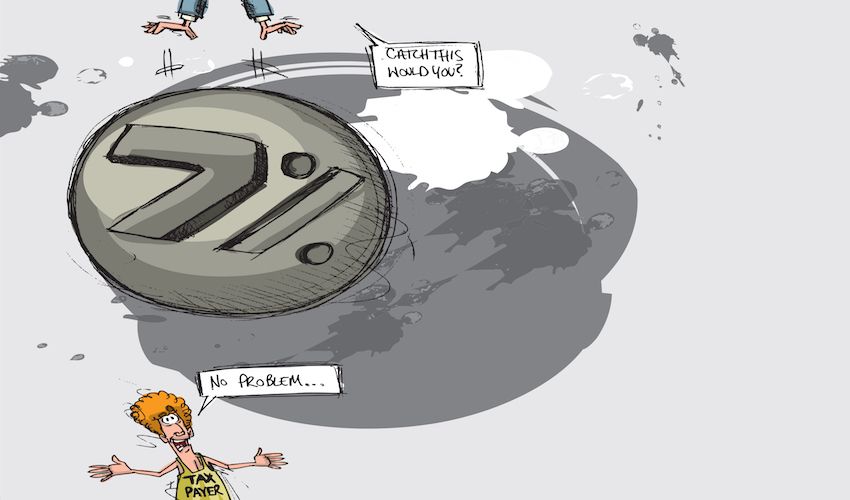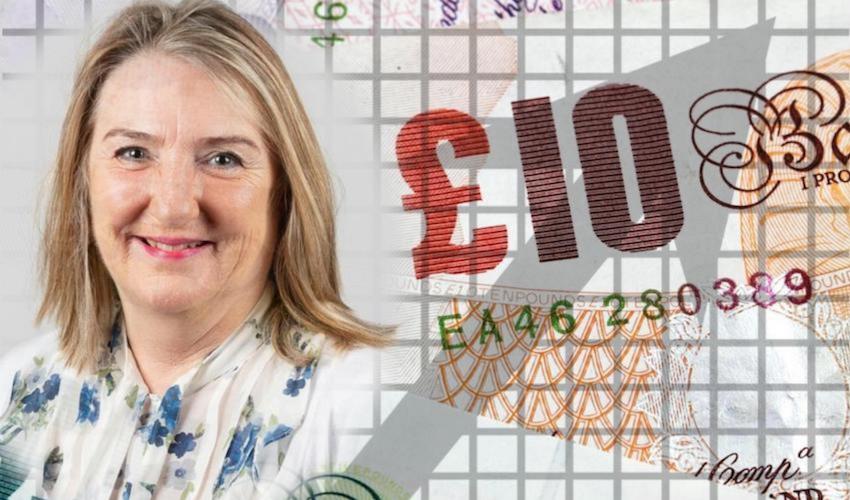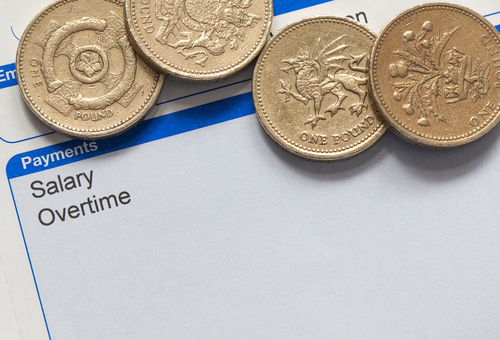

In this month's column for Connect magazine, the secretive business guru known only as 'The Fool' talks about the potential downsides of rises in the minimum wage and their moral hazards.
"10 years after the events of the financial crisis, one of the most difficult things to understand, even for those employed in the finance industry, was how banks were able to take on such enormous levels of risk, only for taxpayers, via Central Bank rescues, to pick up the tab when those same institutions were facing bankruptcy because of their actions.
For those of us with some experience of having skin in the game, this would be the holy grail of investment opportunities, an asymmetric bet, because the individuals who stood to benefit were not the same individuals who would suffer a loss when their wagers went to hell in a handcart.
This asymmetry was what confronted governments during, and in the aftermath of, the crisis, when new rules were bought in for the banking industry. The thrust of this new legislation was to avoid what was termed ‘moral hazard.’ This is where institutions would be free to take unlimited levels of risk, knowing that if things turned out well, everyone would get to roll around laughing manically on their fluffy, money-stuffed mattresses; but if things turned out badly, their losses would be covered by somebody else.

Pictured: "What personal price is there to pay when things turn out to be a little less rosy than predicted?"
In everyday life, because we know that in most instances, we are responsible for the outcome of our own actions, we automatically adjust the levels of risk we take in that action. Choosing not to insure one’s car will undoubtedly save a small amount of money; but the risk of financial loss is significantly higher in the event of an accident, and will fall directly on the individual, rather than a big insurance company. (Not to mention the chance of a chat with Mr Plod, or worse, if the State deems your actions particularly egregious)
So how is one supposed to feel when confronting a situation where the concept of moral hazard no longer seems to apply?
Knowing that what goes around in the private sector invariably comes around in the public sector, whilst we have largely legislated to protect the public against bad outcomes in the financial services sector, do similar controls, and remedies, exist when governments make bad decisions?
They do to an extent, in that any politician who is responsible for a policy that has an overtly negative outcome is likely to struggle for employment for another four years, when it comes to re-election time - *cough* Innovation Fund *cough*. But what of civil servants, or even worse, state-sponsored quangos, who, under the auspices of an ‘independent’ stance, are tasked with coming up with objective answers that seem anything but? What personal price is there to pay when things turn out to be a little less rosy than predicted?

Pictured: The Minister for Social Security, Deputy Judy Martin, recently accepted the recommendation of the Employment Forum and approved a 6.9% increase, the biggest rise to the minimum wage in ten years. It now needs to be signed off by the States.
Putting aside the argument as to whether 7% is the appropriate number or not, what sort of outcomes might we expect from a higher minimum wage?
On the upside, those earning the minimum wage at present will get a little more cash in their pocket, leading, theoretically, to more purchasing power, and an increase in their standard of living. This is good for them, and good for society as a whole, as it reduces reliance upon the state having to supplement lower incomes with various benefit provisions. Oh, and evil companies, trying to take advantage of their workers, obviously get a deserved kicking, because evil etc.

Pictured: A couple of pounds more on a payslip can bring "some inconvenient potential downsides" says the Fool.
Looking beyond these first order effects, however, brings some inconvenient potential downsides (all of which have already been observed in the real world where minimum wage experiments have, and are, being tried). A reduction in working hours for minimum wage staff, reduced secondary benefits for all employees to finance the higher wage costs, higher prices for everyone through price inflation, lower corporate profits and higher unemployment (as companies lay off staff in an attempt to cut costs), all of which ultimately results in a reduction in taxation receipts, and higher welfare costs.
Moral hazard is the assumption of risk without consequence to those creating that risk. Bankers who get that wrong in the future, face either ending up on the street, or in prison. Any guesses as to the chances of the Jersey Employment Forum (or the Chamber of Commerce, or any other quango or charity making ‘calls for’ or ‘suggestions’ which influence government policy) suffering similar strictures when their ‘recommendations’, however well intended, result in the taxpayer having to pick up the pieces?"
This piece can be read in full in the November edition of Connect here.
Comments
Comments on this story express the views of the commentator only, not Bailiwick Publishing. We are unable to guarantee the accuracy of any of those comments.